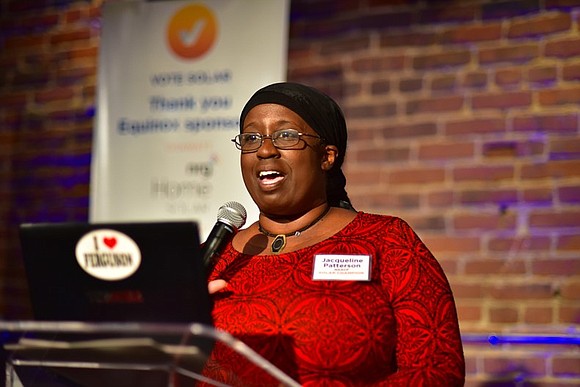Women’s contribution to the NAACP has been underscored by the dedicated service of historic figures like Mildred Bond Roxborough, Doris Adelaide Derby, Ruby Nell Sales, and many others.
The more than 100-year-old civil rights organization has witnessed women who have served integral roles in its history. Today, they still do.
During Women’s History Month, the NAACP began a national initiative to highlight some of its female executives in a campaign titled, “She Leads … I’ll Follow,” celebrating women leadership both past and present.
Among those in the spotlight are Jackie Patterson, who works in the environmental justice and climate change department. Lately, she’s been busy with a report that presents the findings
of many African Americans who’ve fallen victim to high-cost utility bills from private companies.
Dr. Marjorie Innocent, whose health department has been instrumental in assisting in the Flint, Michigan water crisis, also won praise from the NAACP and, Andrea Brown Gee, the vice president of strategic partnerships and planning for the civil rights organization who said she strongly believes the work of the NAACP remains timely and necessary.
“The NAACP continues to mobilize its membership in this millennium to combat racial disparities and inequities through direct action, legislation and other tactics as evidenced in the recent
opposition of Attorney General Jeff Sessions,” Gee said. “The NAACP is taking full advantage of activism through the use of digital strategies like Twitter, Facebook, and Instagram which makes our work progressive and appealing to a broad range of activists.”
Patterson says she sees her primary roles with the NAACP primarily as catalyst, pollinator and facilitator.
“We work with communities who are in deeply challenging circumstances with contaminated air, water, and land whose access to basic needs are severely compromised,” Patterson said. “My role as facilitator is to work with communities to strategize for change and then I’m blessed to bring those lessons to other communities in distress to pollinate with technical resources and act as a catalyst and facilitator of change.”
Ngozi Ndulue, the senior director of criminal justice programs and another woman of the NAACP, said her department works to ensure that the legal system remains fair for all.
“We want to make sure that people who do not need to be involved in the system aren’t involved so we’re working for police reform, to make sure that policing is not harming communities of color,” Ndulue said. “We also want to make sure that people who have been involved in the system have the opportunity to rebuild their lives, so we’re working for fair chance hiring to make sure that people with a criminal record have opportunities for employment.”
The story of the NAACP began on February 12, 1909, with a woman, according to its archives. A white journalist and women’s suffragist named Mary White Ovington joined with two
other activists to call for a national conference on the civil and political rights of African-Americans.
The ensuing conference was called the National Negro Committee, and it was soon renamed the National Association for the Advancement of Colored People, or NAACP.
Ovington served as the third chairman of the NAACP Board of Directors from 1919-1934, the highest position in the NAACP. She also served twice as executive secretary, then the highest position on the NAACP staff.
It is clear that from Ovington and up to today, women have and will continue to play a vital role in the organization “I felt it was necessary to highlight the talents and gifts of NAACP women who lead critical components of our work day in and day out during this Women’s History Month,” Gee said. “To showcase their work and the value of the NAACP during this time in history is paramount.”
